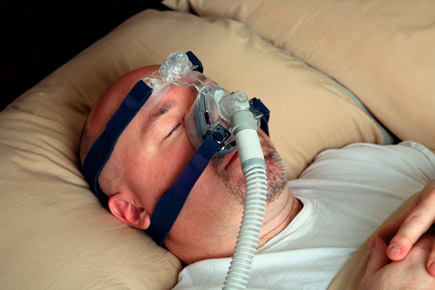Does ACA coverage really make a difference?
Patients with health insurance have better outcomes and enjoy better quality of life. The Affordable Care Act is offering more people access, even though cost-sharing may still put better care out of reach.
At a recent ACP chapter meeting in Nevada, I updated the attendees on the Affordable Care Act (ACA), highlighting its success in driving down the uninsured rate. In 2014, more than 10 million people who were previously uninsured gained coverage. The uninsured rate, according to Gallup, is at an all-time low. Enrollment in 2015 seems at a pace that suggests the administration will meet or exceed its goal of enrolling another 9 million people in health plans offered through the exchanges.
Medicaid enrollment continues to grow in every state, especially in the states that have agreed to accept federal dollars to expand the program. Republican governors in several states are trying to find ways to expand Medicaid that the administration and their own legislatures would support, and if they can, there will be further gains in coverage. It is reasonable to expect, then, that the uninsured rate will decline even further in 2015.
After my talk, one of the attendees, a Master of the College, asked me a very pertinent question: Do we know that outcomes really are any better because people now have “Obamacare” insurance? He added that many of his patients have such high deductibles that he doesn't see how having coverage is making much of a difference, because they still have to pay so much out of pocket. My short answer to him was, not yet. We do not have any real-time evidence that outcomes are any better because more people are insured. It is simply too early to know. Over time, we should be able to see if the gains in coverage result in reductions in mortality and morbidity.
However, I continued, the relationship between having health insurance coverage and having better outcomes is well established in the literature. In February 2009, the Institute of Medicine reported in “America's Uninsured Crisis: Consequences for Health and Health Care,” that “For adults without health insurance, the evidence shows:
- Men and women are much less likely to receive clinical preventive services that have the potential to reduce unnecessary morbidity and premature death;
- Chronically ill adults [will] delay or forgo visits with physicians and clinically effective therapies, including prescription medications;
- Adults are more likely to be diagnosed with later-stage cancers that are detectable by screening or by contact with a clinician who can assess worrisome symptoms;
- Adults are more likely to die from trauma or other serious acute conditions, such as heart attacks or strokes;
- Adults with cancer, cardiovascular disease (including hypertension, coronary heart disease, and congestive heart failure), stroke, respiratory failure, chronic obstructive pulmonary disease (COPD), or asthma exacerbation, hip fracture, seizures, and serious injury are more likely to suffer poorer health outcomes, greater limitations in quality of life, and premature death.”
A 2009 study by Harvard University, published in the American Journal of Public Health, estimated that there are nearly 45,000 excess deaths annually due to lack of health insurance. Yet if the amount of money people have to pay out of pocket (premiums, deductibles, co-payments) for their Obamacare plans is too high, isn't it possible that their coverage may not end up having as great an impact on improving health outcomes?
One answer is that the previously uninsured, prior to Obamacare, had zero coverage, so they had to pay 100% of their medical care out of pocket, excluding charitable care. Let's say these patients have now enrolled in a “silver” Obamacare plan that covers 70% of the cost of their covered benefits. For them, paying 30% of their health care costs out of pocket is unquestionably better than having to pay 100%. Plus, preventive services are offered at no cost under all of the ACA's plans. People with incomes of less than 250% of the poverty level can also apply for additional subsidies to reduce their out-of-pocket costs. For Medicaid enrollees, their cost-sharing is close to zero.
Even many people who previously had insurance can save thousands of dollars by enrolling in an Obamacare plan. A Jan. 15 study by the Commonwealth Fund reported that “Just over half of people with nongroup coverage in 2009-11 had family incomes at or under 400 percent of the federal poverty level, making them potentially eligible for the marketplaces' premium subsidies and a substantial reduction in their cost burden. For instance, adults in families with incomes between 138 percent and 250 percent of poverty spend an average of $5,435 for coverage; buying coverage through the marketplace could reduce that price tag by two-thirds, to $1,797.”
A recent poll also shows that people who enrolled in an ACA plan are more satisfied with the cost of their care than the overall insured population. According to Gallup, 71% of ACA enrollees say their coverage is good or excellent, 19% say it is fair, and only 9% say it is poor. And 75% of new ACA enrollees report being satisfied with their cost of care compared to 61% of the overall insured population nationwide.
This is not to say that there is no reason for concern about the amount of money that people have to pay out of pocket. For many people, paying even 30% or 40% of the cost is a stretch. There comes a point where the premiums, deductibles, and co-pays become so high that they become a barrier to care, undermining the gains of getting more people covered. The problem is that lowering the required cost-sharing in the ACA plans would cost the federal government unknown billions more, and there is no reason to believe that the government will take that step.
Yet the preponderance of evidence shows that people who have health insurance have better outcomes than those who do not. They enjoy more piece of mind, are less likely to forgo needed care, and are less likely to go bankrupt because of high health care bills. There is every reason to believe, then, that the gains in coverage because of Obamacare will over time result in fewer preventable deaths and suffering, even though it is appropriate to be concerned that the cost-sharing required may still be too high for many Americans.




